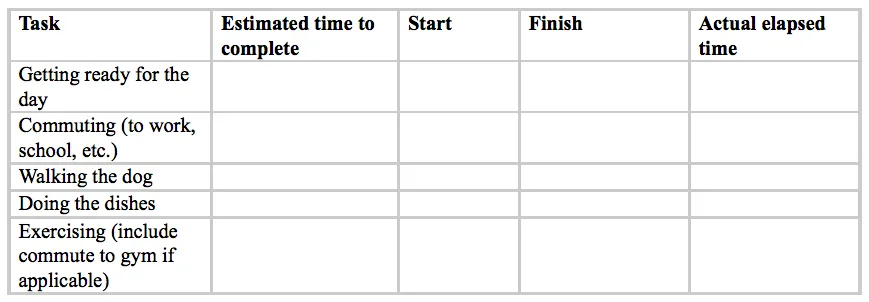
Ask Izzy is a biweekly advice column about relationships, mental health, and sexuality. Written by Isabel Mata – a Seattle-based lifestyle writer, podcast host, and mental health advocate – Ask Izzy offers tangible expert advice so all readers can have stronger relationships, better sex, and healthier mindsets. Looking for some more guidance? Submit your question at [email protected] with the subject line: Ask Izzy Submission.
Dear Izzy,
I am neurodivergent and get overwhelmed super easily. Even doing chores around the house becomes unbearable with everything I have going on in my life. But being overwhelmed makes me end up procrastinating, distracting myself, and not getting anything done. Also, when I start one task, it's hard for me to compartmentalize and work on other things at the same time. Which is awful when there are multiple deadlines for different things happening all at once! Advice? (People have told me to take things one step at a time, but I can't help looking at things from an all-or-nothing perspective!)
– Overwhelmed in Everett
Dear Overwhelmed,
When I graduated college and started my first full-time job, I had a really hard time managing all the things on my plate, both in the office and at home. Everything seemed daunting to me, even small things like answering emails, putting away the laundry, and picking up after myself. So much so that eventually, I would get emotionally paralyzed by the mountain of tasks and hide in my bed until it was time to face reality.
When I finally hyped myself up enough to start on my list, I realized that some of the tasks only took a few minutes to complete! This, though, sent me into a shame spiral for not being able to do such simple things.
As neurodivergent people, the way our brain works differs from the rest of the population as it relates to our executive functioning skills and our distinct perception of time. Because I was tired of never accomplishing anything and feeling stressed out over simple tasks, I asked my therapist for help. She explained to me a concept called autistic inertia, or for people with ADHD, task paralysis, which is described as difficulty in starting and stopping an activity or changing from one task to another.
According to @theausticlife on Instagram, "[autistic inertia] often feels like we are frozen or in perpetual motion and can't make ourselves act as we intend to, whether to stop or start moving."
Sounds familiar, right? But fear not, there are a few things you can do to work with your brain, not against it.

1. Start with a time audit
You've probably heard it a million times, but having a routine really is key to reducing the cognitive load that comes with processing to-do lists and change. But before you can establish a routine that works for you, you must increase your time awareness. This means writing down how long you think a task takes, then actually timing yourself the next time you do the task to see how long it actually takes. Creating a chart like this can help you with this task.
2. Make a daily activity time log
It can be hard to make changes to how you manage time if you are not sure where all your time goes. To answer this question, pick a weekday and track everything you do that day from when you wake up in the morning until you go to bed that night. If you are a college student, it would look something like this, in part:
8:00-9:00 Woke up and got ready for the day (shower, got dressed, brushed teeth)
9:00-10:00 Ate breakfast, walked the dog, packed bag for school
10:00-11:00 Took the bus to campus and finished homework
11:00-noon Class
Noon-1:00 Lunch
3. Create small routines that work for you
Once you have a solid list of all your daily tasks and how long they take, you can start to create a routines. Try creating routines for different parts of your day, like getting ready for work, cooking dinner, cleaning up around the house, getting ready for bed, etc., and practicing them for at least two weeks. You'll find that over time, you spend less energy worrying about these tasks because they become like second nature. It also helps if you add some fun into your routine with music, games, or any other special interests.
I find it especially helpful to write down my different routines and place them where I can see them every single day. My leave-the-house routine is by the front door, my bedtime routine is on my bathroom mirror, etc.
4. For big projects, break them down into smaller tasks and write them down
When my apartment gets especially dirty and I can't go another day without doing a "big clean," I feel really overwhelmed and don't know where to start. Therefore, breaking down big projects into smaller tasks can be helpful.
But before you can do that, you must recognize that the "all or nothing" perspective that you speak of is a cognitive distortion. Recognizing that can help you move forward. For example, if your goal is to clean the entire house (super daunting, scary, ahhh!) and you are stuck on the big picture, it helps to create smaller, more attainable goals based on each room.
Before you start, write down the task list for each room so that you can check things off when you complete them. It will feel good and help you stay on task!
For example:
Kitchen
Recap
If you have ADHD, autism, or any other kind of neurological disorder that makes maintaining focus, completing tasks, and managing time frustrating, give yourself some compassion and grace when you are feeling overwhelmed and stuck. Forcing yourself to push through won't help you in the long run. What will is structure and routine.
The tips above are just a starting point. If you are looking for a more long-term solution, I recommend reaching out to a mental health professional with experience in cognitive-behavioral therapy.
You can do this!
References:


